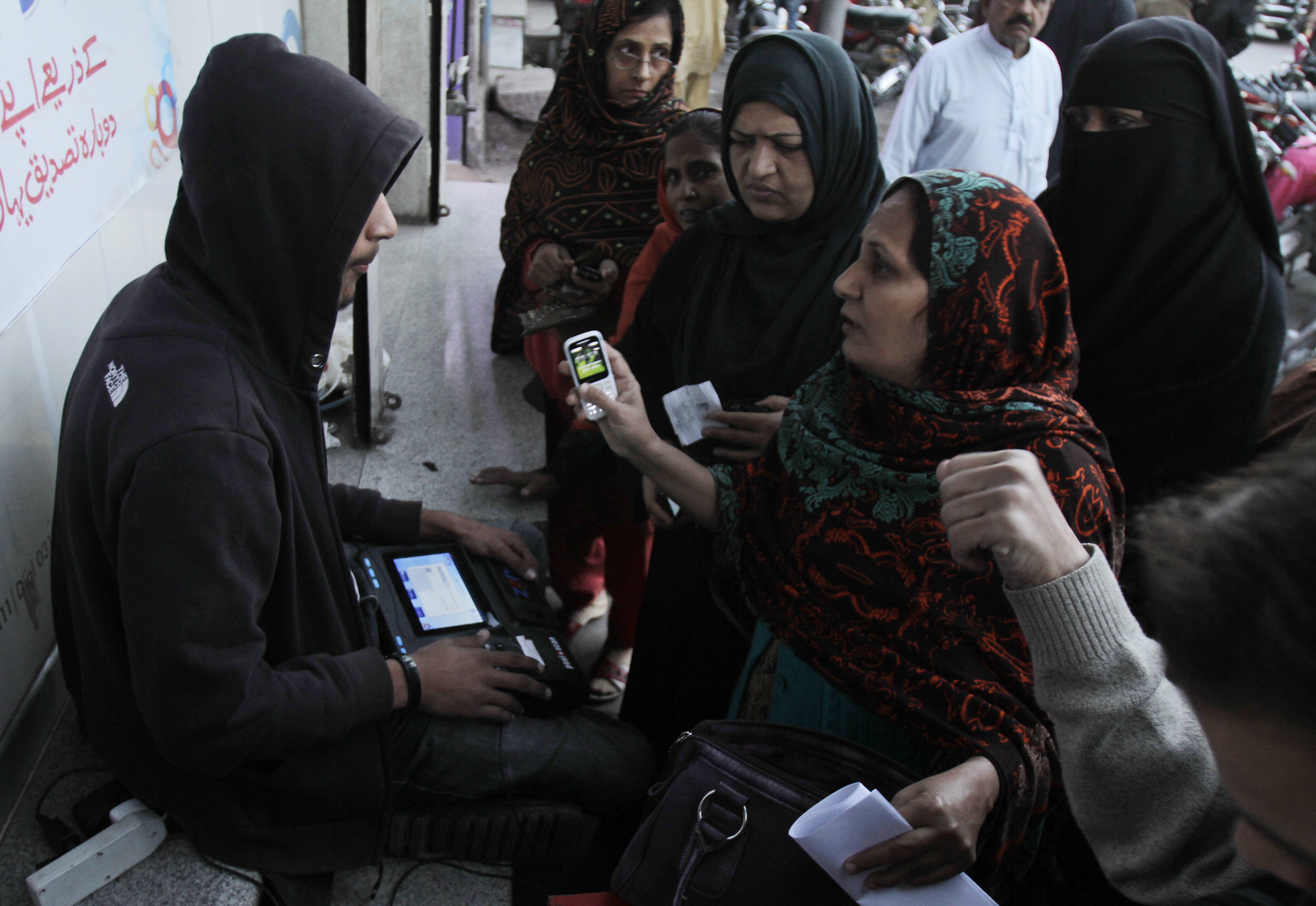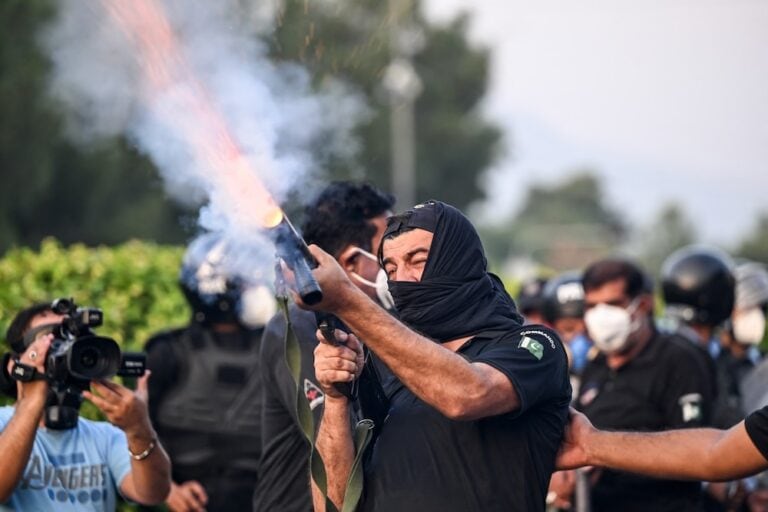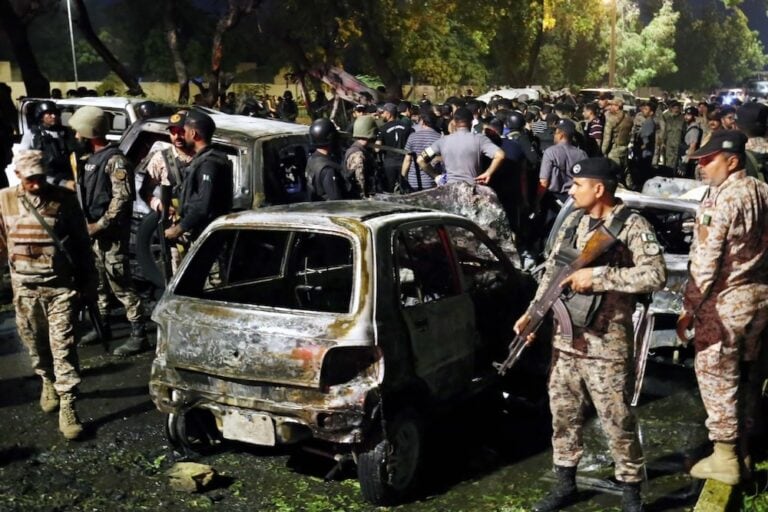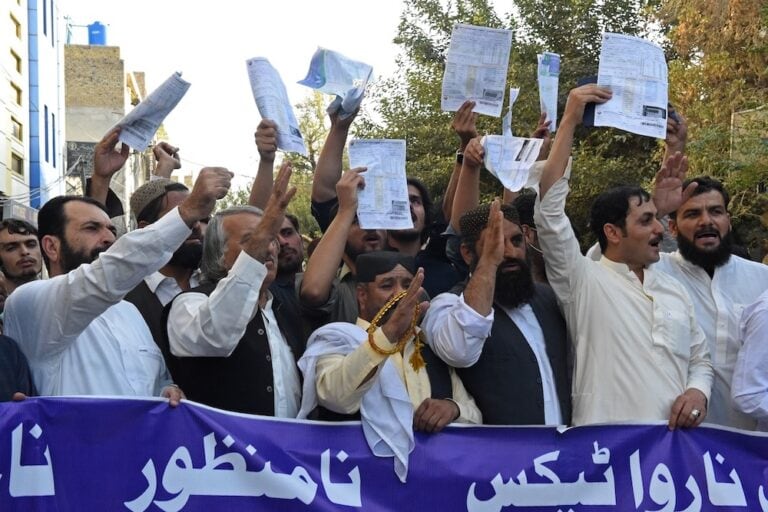A report reveals that Pakistan's Inter-Services Intelligence Agency sought to tap all IP-bound communications traffic entering or travelling through the country.
This statement was originally published on privacyinternational.org on 21 July 2015.
By Matthew Rice
Every government seems to want to spy in Pakistan. The US’s National Security Agency (NSA) tapped the fibre optic cables landing in Karachi, among others, and used 55 million phone records harvested from Pakistani telecommunications providers for an analysis exercise. The United Kingdom’s Government Communications Headquarters (GCHQ) had a store of SIM keys from Mobilink and Telenor networks, two of the country’s biggest providers.
But the Pakistani government, specifically the Inter-Services Intelligence (ISI), its most powerful intelligence agency, is giving them all a run for their money. In a 2013 project revealed for the first time in a Privacy International report, the ISI would tap all internet protocol (IP)-bound communications traffic entering or travelling through Pakistan and corresponding monitoring capacities.
Meaning what, exactly? The project means collecting and storing the entire scope of IP-bound communications passing in and through Pakistan, at a rate of around 660 gigabytes per second. It means hiring 200 analysts to monitor up to 5,000 concurrent targets – with room to scale up, of course.
It means tapping communications data straight at the source, the fibre optic cables on which much of the data travels, and centralizing in a far more powerful way than the government’s extensive capacity to lawfully intercept data on Pakistani networks. This is hugely powerful.
In short, this project means tipping the scales of power towards the intelligence services and away from citizens. It means capacitating the country’s most notorious intelligence service to spy on more of the country’s citizens and expecting it to police its own actions.
Surveillance is an easy sell in Pakistan. Armed violence has moved from rural battlegrounds to Pakistani cities. Horrific attacks against civilians like last year’s Peshawar school massacre fuel calls for more and better surveillance. The US’ strikes using armed drones in Pakistan continue to alienate and antagonize, but are still widely seen as necessary to defend Pakistan, according to some studies. The country already has one of the world’s largest biometric databases. It is currently synchronizing with its SIM card registration databases in the name of crime prevention.
Yet mass, indiscriminate communications surveillance goes against the most basic fundamental human right to privacy. Laws that used to protect against this kind of overreach have been eroded despite Pakistan’s Constitution protecting the right to privacy. The right to free speech and free assembly – also protected by the Constitution – depends in part on the right to privacy. They are both at risk when armed conflict and insecurity are increasingly used to justify mass surveillance.
Take the 2013 Investigation for Fair Trial Act. This Act makes it easier for agents to spy on communications by significantly lowering the threshold for obtaining warrants. Under the Act, a warrant can be requested wherever an official has ‘reasons to believe’ that a citizen is, or is ‘likely to be associated’ with, or even ‘in the process of beginning to plan’ an offence under Pakistani law. The breadth of those qualifying criteria is remarkable, and renders the additional protection offered by the process of applying to a judge illusory. Under the Prevention of Electronic Crimes Bill, which is being considered at the moment, courts would have no role in vetting or reviewing the grounds for interception. NGOs and human rights groups are increasingly under threat in Pakistan. How much of their vital work would be stifled or affected?
Privacy International understands that the contract to build the “IP Monitoring System and COE [Common Operations Environment]” has been awarded. This is only the latest chapter in expansion of surveillance in Pakistan, but it is the most significant. The scope and scale of the program that the Inter-Services Intelligence (ISI) called for in 2013, cannot be justified as necessary and proportionate even by the country’s own rules.



